SUMMARY
This is AI generated summarization, which may have errors. For context, always refer to the full article.
![[VANTAGE POINT] Siding with China in sea dispute is treason](https://www.rappler.com/tachyon/2023/08/siding-with-china-TL-aug-28-2023.jpg)
Among the countries in dispute with China on its mind-boggling claims over 90% of the West Philippine Sea, ours is the only one where the public is divided, with many falling for China’s ruse.
In a recent interview over dzBB, National Security Council assistant director general Jonathan Malaya said that China seems to be winning the psywar by disseminating lies about the West Philippine Sea issue. Sadly, many gullible Filipinos are falling for it.
Among the many yarns being spun is the claim that the Philippines had committed to remove the grounded BRP (Barko ng Republika ng Pilipinas) Sierra Madre from the Ayungin shoal.
“It’s the Chinese that’s making such claim. Therefore they have to prove it because we’re falling into their trap, instead of getting united as a nation,” Malaya lamented in Filipino. “We fight among ourselves, thinking there are traitors in our midst.”
I cannot totally blame some of our countrymen from having such thoughts. We have a popular former president who has consistently sided with China. He even recently visited the communist nation and intimately broke bread with China’s leader Xi Jinping, amid rising tension in the disputed waters.
According to Malaya, China’s tact is to cause division among Filipinos and strengthen its position on the West Philippine Sea issue: “In this time, we need unity. We have to show the world that we Filipinos understand our position and we fully support the position of the Philippines.”
China has time and again referred to its made-up “nine-dash line” in asserting its sovereignty over a large swath of the West Philippine Sea. It refers to a demarcation line drawn by China on maps, which encircles a vast portion of the disputed waters encompassing areas also claimed by several other countries in the region, including Vietnam, the Philippines, Malaysia, Brunei, and Taiwan.
There are several concerns and issues associated with the expansive territorial claims represented by China’s nine-dash line, primarily its violation of the principles of the United Nations Convention on the Law of the Sea (UNCLOS). UNCLOS defines maritime boundaries and provides a framework for the exclusive economic zones and territorial waters of coastal states.
Military flexes muscle
Has the military finally found its tongue at last? It was infuriatingly quiet in the face of more serious provocations launched by the Chinese in the past.
For one, the Philippine Coast Guard has lashed out at China for its bullying tactics in the West Philippine Sea. Just two weeks ago, its spokesman, Commodore Jay Tarriela, said Filipinos who defend or excuse the way the Chinese prevent the military’s mission from resupplying its troops on the grounded BRP Sierra Madre are traitors.
If that is so, then former president Rodrigo Duterte is the biggest traitor of them all. Not only did he defend the Chinese blockade during his time in office, he publicly asked Premier Xi Jinping to make the Philippines a province of China. In stark contrast, Taiwan President Tsai Ing-wen vows to resist any attempt by China to put the island nation under its control.
No other Filipino president has committed such betrayal of Philippine sovereignty.
Former president Gloria Macapagal Arroyo came tantalizingly close. On April 20, 2007, she signed the multi-million NBN-ZTE deal in Hainan, China, allegedly in exchange for allowing China to conduct oil and gas exploration in Philippine territorial waters. The Philippine National Broadband Network controversy involved allegations of corruption in the awarding of a US$329 million construction contract to Chinese telecommunications firm ZTE for the proposed government-managed National Broadband Network.
The late Ferdinand Marcos committed horrible crimes, but treason was not one of them.
How would one define treason in the Philippine context? Clearly, former president Duterte is pro-China, but he can argue, using that standard, that Filipinos who are pro-US are also traitors. The analogy is flawed. Until the Military Bases Agreement was abrogated, the Philippines hosted Subic Naval Base, which together with Clark Air Base, made up the largest American military installation outside the Continental United States (US).
The Philippines and the US have a long standing military alliance. It is not treason for Filipinos to honor their treaty obligations. Since no such alliance exists between the Philippines and China, it is therefore treasonous when the former president defended China, which was – and still is – occupying Philippine territorial waters by force.
In July 2017, the PDP-Laban, taking its cue from Duterte, forged an alliance with the Chinese Communist Party. Sen. Aquilino “Koko” Pimentel III, then the party’s president, led a delegation to Beijing, ostensibly to learn how to fight corruption in the government.
If the ruling party learned anything about good government then, it failed to apply it.
A year later, Christopher “Bong” Go, then special assistant to Duterte, was accused of pressuring the Philippine Navy to award the P5.5 billion warship contract to a favored South Korean supplier. The P15-billion PhilHealth scam and the P10-billion Pharmally anomaly followed in quick succession.
The stated objective was a mere cover. Sen. Pimentel’s real purpose was to prepare the groundwork for China’s takeover of the Philippines.
How did PH become a Chinese dupe?
In December 1992, the Senate of the newly restored democratic government decided to terminate the RP-US Military Bases Agreement of 1947. The majority, led by Senate President Jovito Salonga, voted for abrogation because they were still resentful of the Americans for propping up President Ferdinand Marcos Sr.’s authoritarian rule for so long. The minority senators, Juan Ponce Enrile and Joseph Estrada, went along because they felt the Americans had ditched their “Dear Leader.”
It was not treason, but lack of foresight, however that the senators are guilty of. The Chinese rushed in to fill the vacuum, occupying islets and shoals within the Philippine 200-mile Exclusive Economic Zone. President Noynoy Aquino kept them at bay, but Duterte then came along and paved the way for the Chinese to firm up their claims.
According to the senators, all American military forces must be expelled from the country because their presence infringed on Philippine sovereignty. It was a ridiculous proposition, given the fact that the country was so weak militarily that it could not even fight off the water cannon fired by the enemy.
Would South Korea and Japan, two economic and military powerhouses, step out of the US defense umbrella because it is an affront to their independence? To believe that neutrality would insulate the Philippines from superpower conflicts is to be ignorant of world history.
Adolf Hitler annexed Austria to achieve Anschluss, or connection. The country hosted a sizable population of ethnic Germans. He tried – but failed – to invade the Soviet Union, officially the Union of Soviet Socialist Republics (USSR), to gain Lebensraum or living space for the German people, despite the peace treaty he and Josef Stalin had signed. The USSR was a transcontinental country that spanned much of Eurasia from 1922 to 1991. Hitler occupied Denmark, Norway, Belgium, and the Netherlands – all self-proclaimed neutral countries – because it was in his interest, strategically and tactically, to do so.
Fast forward to the present. The invasion of Ukraine demonstrates that non-alignment is an invitation to aggression. It is the lesson Sweden and Finland had in mind when they applied to join the US-led North Atlantic Treaty Organization.
Neutrality looks great in theory, but it does not work in the real world. – Rappler.com
Val A. Villanueva is a veteran business journalist. He was a former business editor of the Philippine Star and the Gokongwei-owned Manila Times. For comments, suggestions email him at mvala.v@gmail.com.
Add a comment
How does this make you feel?
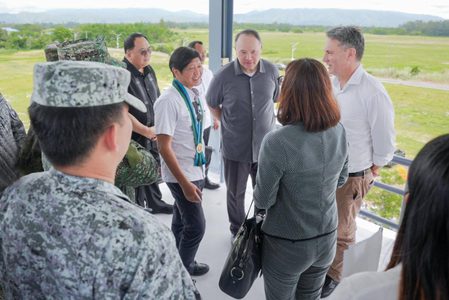
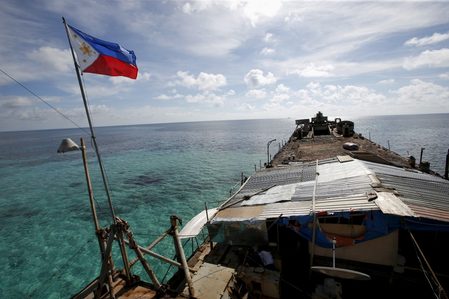
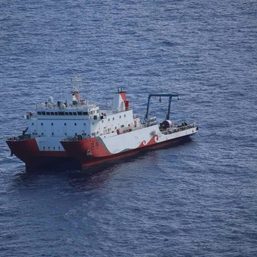
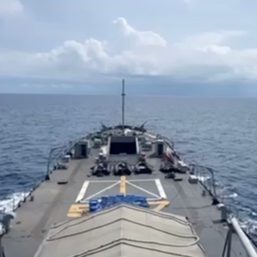
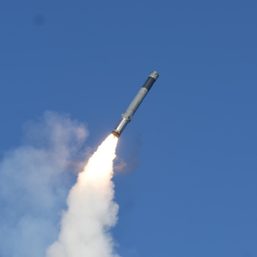


![[Vantage Point] Xi’s flotilla blocks energy development in South China Sea](https://www.rappler.com/tachyon/2024/04/china-aggression.jpg?resize=257%2C257&crop=442px%2C0px%2C1080px%2C1080px)
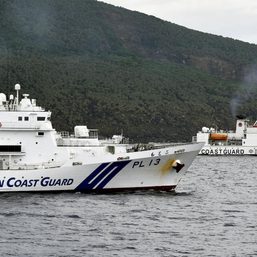
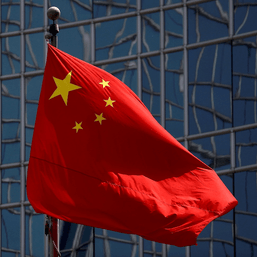
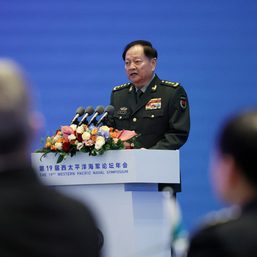
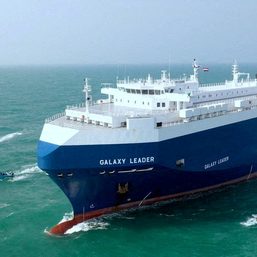

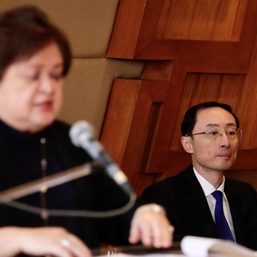
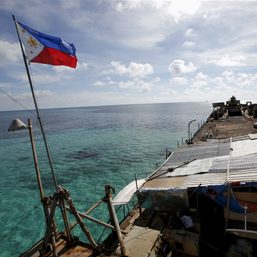
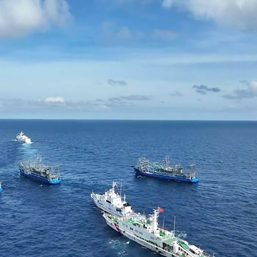
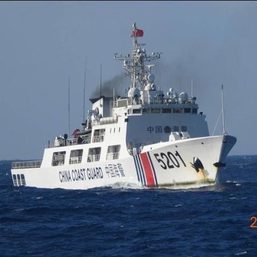

![[EDITORIAL] Bakit hindi mahuli-huli si Apollo Quiboloy?](https://www.rappler.com/tachyon/2024/04/animated-quiboloy-investigation-april-2024-carousel-edit.jpg?resize=257%2C257&crop_strategy=attention)

![[The Slingshot] Alden Delvo’s birthday](https://www.rappler.com/tachyon/2024/04/tl-alden-delvo-birthday.jpg?resize=257%2C257&crop=263px%2C0px%2C720px%2C720px)
![[EDITORIAL] Ang low-intensity warfare ni Marcos kung saan attack dog na ang First Lady](https://www.rappler.com/tachyon/2024/04/animated-liza-marcos-sara-duterte-feud-carousel.jpg?resize=257%2C257&crop=294px%2C0px%2C720px%2C720px)
![[Newsstand] Duterte vs Marcos: A rift impossible to bridge, a wound impossible to heal](https://www.rappler.com/tachyon/2024/04/duterte-marcos-rift-apr-20-2024.jpg?resize=257%2C257&crop=278px%2C0px%2C720px%2C720px)
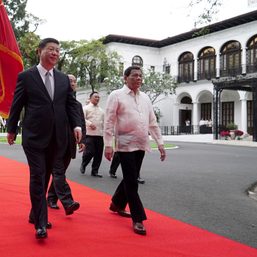
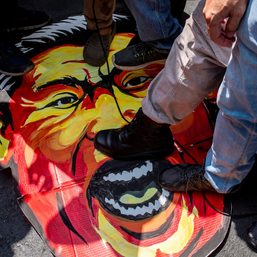
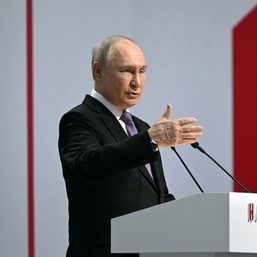
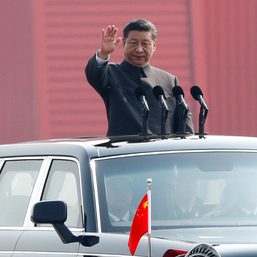
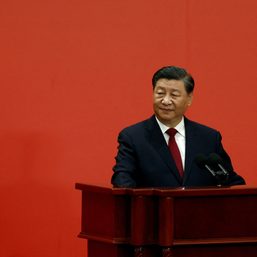
There are no comments yet. Add your comment to start the conversation.